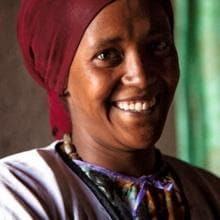Family Planning For Sustainable Development
Health for all, Hunger for none

Bayer is a global enterprise with core competencies in the Life Science fields of health care and agriculture.

As a leader in healthcare, Bayer provides innovative solutions designed to prevent, alleviate and treat diseases.

Bayer provides tailored solutions for farmers to plant, grow and protect their harvests using less land, water and energy.

The United Nations formulated it very clearly: family planning is a fundamental right of every human being. Self-determined family planning and reproductive health is a major step toward breaking the cycle of poverty – both for women and their families and for the countries where they live.
Family planning is a centerpiece for sustainable development. Investing in family planning addresses poverty, maternal and child health, gender equity and human rights. Communities benefit from better health for women and children, better attendance and performance in schools, improved economic conditions and lower healthcare cost.

However, much remains to be done before the right to self-determined family planning is implemented worldwide. 214 million women of reproductive age in developing countries who want to avoid pregnancy are not using a modern contraceptive method.
Family planning is an important step toward breaking the cycle of poverty – both for women and their families and for the countries where they live. We can help initiate sustainable development – by improving people's quality of life, investing in education, securing resources for the entire population, protecting the environment.
For 50 years now, Bayer has been working as part of a network of public and private partners to enable women and girls to assert their right to self-determined family planning worldwide. In recognition of this long-standing commitment, we were accepted in 2007 as a member of the Reproductive Health Supplies Coalition (RHSC) – as the first pharmaceutical company.
Success in the promotion of family planning stems from three main pillars: Availability, Affordability and Awareness.
Promoting family planning successfully is access to the contraceptives themselves. This includes the freedom to choose between the different methods available. We support family planning programs by offering a broad range of hormonal contraception methods within a network of partners, who run programs, ensuring that the products will be achieved by the women in need. This so-called ‘last mile’ is of utmost importance. The products are distributed via family planning organizations which already have well established channels.
Together with our partners, we initiate and support cooperation projects that are committed to improving access to family planning methods, including the concept of affordability and supply chain security. For example we offer our oral contraceptive Microgynon® Fe at an affordable price – in terms of local incomes – to middle income women in Sub-Saharan African countries. They now can buy the product at the pharmacy. The costs of production and distribution are fully covered by the purchase price. This means that supply and availability are controlled solely by demand in the respective country and are independent of subsidies.
Only knowledge of the possibilities and benefits of active family planning empowers individuals to take independent decisions. The vision is a world where every pregnancy is wanted. We are committed to partnerships, also in educational programs and awareness initiatives such as World Contraception Day and the Young Adolescents Program with DSW.
 Bayer has been supporting family-planning programs for over 50 years now, to date in more than 130 countries with a broad range of hormonal contraception methods. Within these programs Bayer offers a broad range of hormonal contraception methods like oral contraceptives, injections and implants. Our contraceptive products were the first to be prequalified by the World Health Organization.
Bayer has been supporting family-planning programs for over 50 years now, to date in more than 130 countries with a broad range of hormonal contraception methods. Within these programs Bayer offers a broad range of hormonal contraception methods like oral contraceptives, injections and implants. Our contraceptive products were the first to be prequalified by the World Health Organization.
